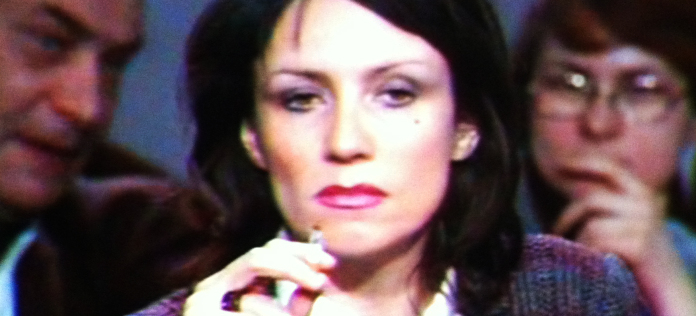3:AM Magazine, 2024
Article traduit par Tobias Ryan, publié initialement en français in lundimatin#384 (22 mai 2023)
« Annie Ernaux and Annie Le Brun seem to represent two irreducible currents and approaches: one of the institutionalised left, a left that always holds power in the cultural milieu, and the other issuing from a left recalcitrant, something closer to anarchism but without claiming any label, and which, in fact, abhors them.
Le Brun grates and whips, without getting on her high horse; she isn’t outraged in the same tones as Ernaux, nor does she feel invested with a project of denunciation, even one that does not extend to the branch on which it is thought to rest: she clearly understands that indignation is an element of the system, and one which keeps it afloat. She is a feminist critical of every doctrinaire position, unsparing of the institution, similar, in her intransigence to Ernaux, but bearing discourse that it is difficult to recuperate. A thorn in one’s thoughts: an Annie who would never have won the Nobel, and who, in any case, would have let it be known that she didn’t want it anyway.
Ernaux freed me from certain shames, and opened intimate paths from which I have strayed, not least from a narrative perspective. She pushed me to confront my background from something other than a psychological angle, as someone other than a nostalgic or complaisant dreamer. Her method, however, would quickly be revealed as a route that sterilised my imagination. Because if she had opened the gates, she had also established a search and sweep system à la française, and aimed at a truth, though doubtless emancipatory, which while wholly conscious of its own limits, proved restrictive. She reduces, somewhat, the complexity of the creation of a person, avoiding the vagabond trails that diverge from one’s private path and, paradoxically, curtailing the lucidity to which she aspires. Nonetheless, she wrote: Theres is something immense to experience, which requires questioning without end. It is this promise that she has not always achieved. And, for me, it was exactly that which I soon found lacking in her books.
Le Brun opens no obvious gates, but with her we can flee toward the forest, the mental space which remains disquieting, and which also resists every caricatured simplification of the human person. She reopens the desire for the infinite and confronts the landscape of the abyss. Reading her spreads wings that ruffle method, that shake the confinements of every system, that propel us toward overflow, to sabotage, thus inventing, through a tenacity which attempts to hold everything together, opposites and forces, creating other dimensions. If she is sometimes imprecatory, she carves a demanding path which does not exclude reason, but which overwhelms it. In doing so, she constantly opens loopholes.
If I am grateful to the books that have liberated me, like those of Ernaux, I cherish those which have set me free. Le Brun has liberated me less than she has left me free to welcome the je ne sais quoi from the shadows within, and to feel no fear… »
